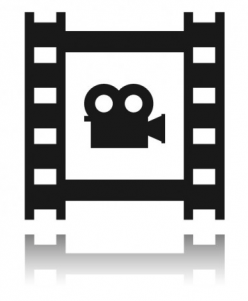The workshop started by a recap of Action Research and then moved on to the action research cycle. Adding our actions on Miro allowed me to understand better the different phases of action research and how to implement them.
Messy Work, Meshwork and Meh Work:
I have to say that learning that mess was an important factor of action research was liberating to me. At the time, I had done the 121 interview and the students’ Padlet feedback and I was preparing the focus group. I could sense that a lot of different point of views had already been expressed and I was feeling a bit overwhelmed with all these different ways of thinking. I wasn’t quite sure where all this would lead and didn’t have a grasp on how to make sense of the data.
One sentence from Cook’s study[1] (2009) really resonated with me:
“In research, having multiple viewpoints, where each new view and theory is a springboard for further reflection, is an important way of finding new ways of seeing.”
I also very much enjoyed the Meshwork idea that space is actively created rather than something out there to be discovered. I was also interested in the notion that meshwork allows for dynamism and change which is what I wanted for my research. I could relate to this concept as I was researching the lecture that I had created but also was interested in the connection difference between Meshwork and Network.
The Meh work section highlighted 2 different approaches: the Modernist, which deals with the matter of fact and the Design, which deal with the matter of concern. The Design approach resonated better with me as it touched on an aspect of the research that was very important. Why does it matter to me? Why did I wanted to do a lecture on the bias in the film industry and researched it? The answer to these questions resides in the ethic of the research. It was important to me because I had been the recipient of these biases throughout my working experience and I wanted to be part of the solution rather than part of the problem.
Learning to review efficiently and thoroughly an article to extract all the purposes, questions, information, inferences, concepts, assumptions, implications and point of views allowed me to be much more efficient in my reading. I took the habit of making notes and references which greatly helped when writing the research.
What I found difficult to get my head around was the referencing. I do not know if it is because I am dyslexic but it took me quite a while to identify the different referencing methods and to apply this new knowledge to my research.
Sampling was interesting to know about, but ultimately was irrelevant to my research as my sampling was random amongst the population of MA Film students that participated to the lecture.
The data collection tools swap shop was fascinating and was only slightly hindered by the fact that not everybody was ready for the exercise. Saying that, it allowed for a peer to peer exchange of ideas and concepts that was useful to all. The very first information I extracted from this session was the difficulty in elaborating questions. The syntax, the clarity, the order of the questions were all important factors that would help getting relevant and informative data. It was a great help to hear other people’s questions and to see the difference between the intention of the person asking the question and how actually it is received and perceived by a participant. Being able to be in turn an interviewer and an interviewee allowed me to understand the complexity of questioning and the importance of its accuracy.
We also look into our data collection methods and this was a bit more reassuring as I had planned (without fully realising it) quite few different ways of getting data. It is actually one of my peers in my group that highlighted that I would end up with a lot of data considering that I wanted to do a Padlet feedback after the lecture, a 121 interview, a focus group and a questionnaire. I have to say that I hadn’t thought of the volume of data I would get and this peer’s reflection made me realised that I had no idea how to deal with all the data I would get.
Thankfully Workshop 3 will be all about data analysis…
[1] Cook,T. (2009) The purpose of mess in action research: building rigour though a messy turn, Educational Action Research, 17:2, 277-291
